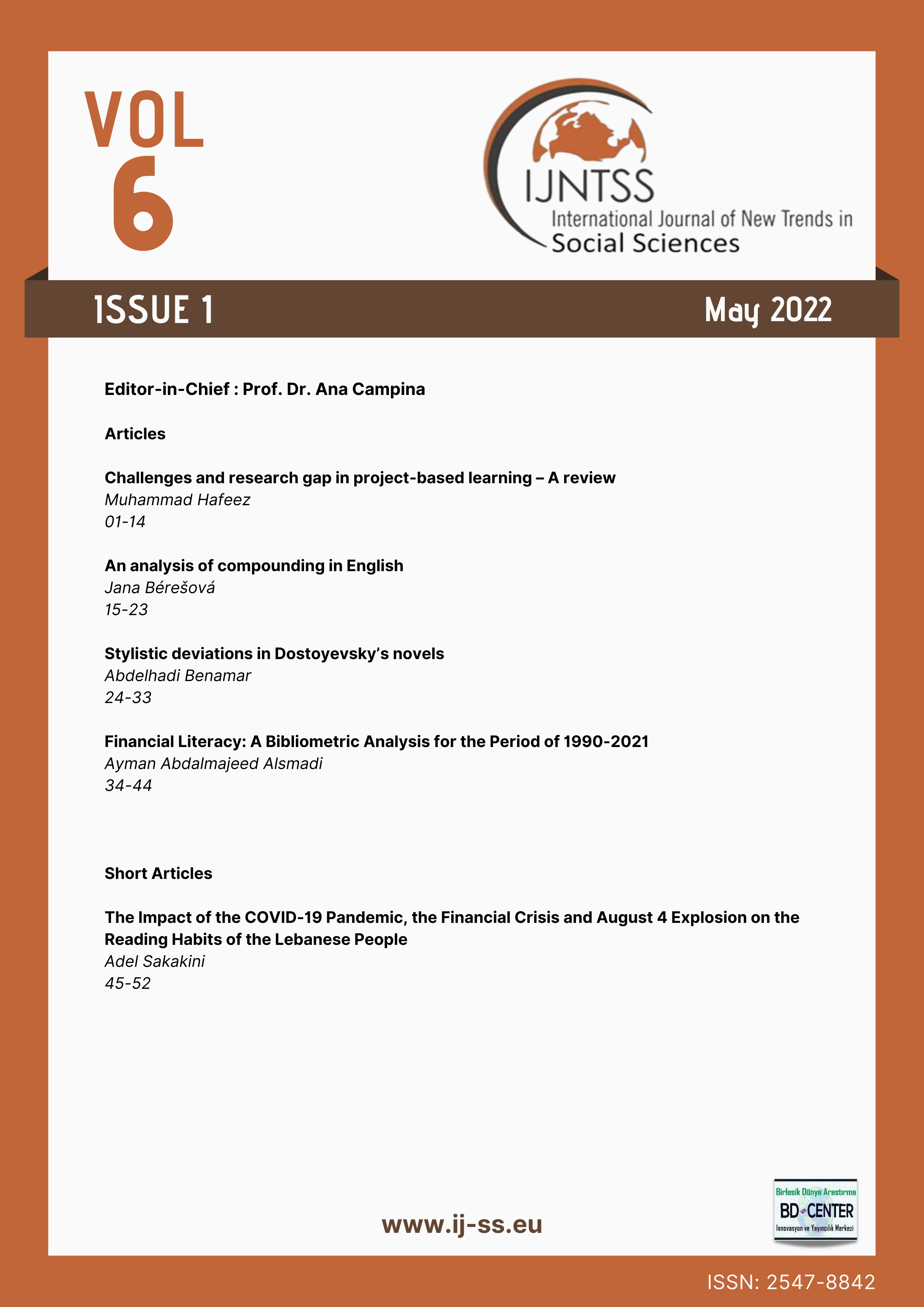An analysis of compounding in English
Main Article Content
Abstract
Word formation processes contain compounding as one of the principal processes. In English, forming new words by compounding has been recognised since the language of Anglo-Saxons started to develop. The study aims to search for examples of compounds used in contemporary literary prose, focusing on the conceptualisation of reality. Our study will be based on an analysis of excerpted examples that will be sorted according to common features of the way the language users perceive and capture reality. To create and transfer new meanings effectively, compounding seems to be productive as two or more words are combined and function as a single word. The meaning of the compound is influenced by the meanings of its constituents and the relationship between them. Different combinations of meanings are determined by the way extralinguistic reality is classified by the language community.
Keywords: Compounding, conceptualisation, English, extralinguistic, semantics
Downloads
Article Details

This work is licensed under a Creative Commons Attribution 4.0 International License.
Authors who publish with this journal agree to the following terms:
- Authors retain copyright and grant the journal right of first publication with the work simultaneously licensed under a Creative Commons Attribution License that allows others to share the work with an acknowledgement of the work's authorship and initial publication in this journal.
- Authors are able to enter into separate, additional contractual arrangements for the non-exclusive distribution of the journal's published version of the work (e.g., post it to an institutional repository or publish it in a book), with an acknowledgement of its initial publication in this journal.
- Authors are permitted and encouraged to post their work online (e.g., in institutional repositories or on their website) prior to and during the submission process, as it can lead to productive exchanges, as well as earlier and greater citation of published work (See The Effect of Open Access).
